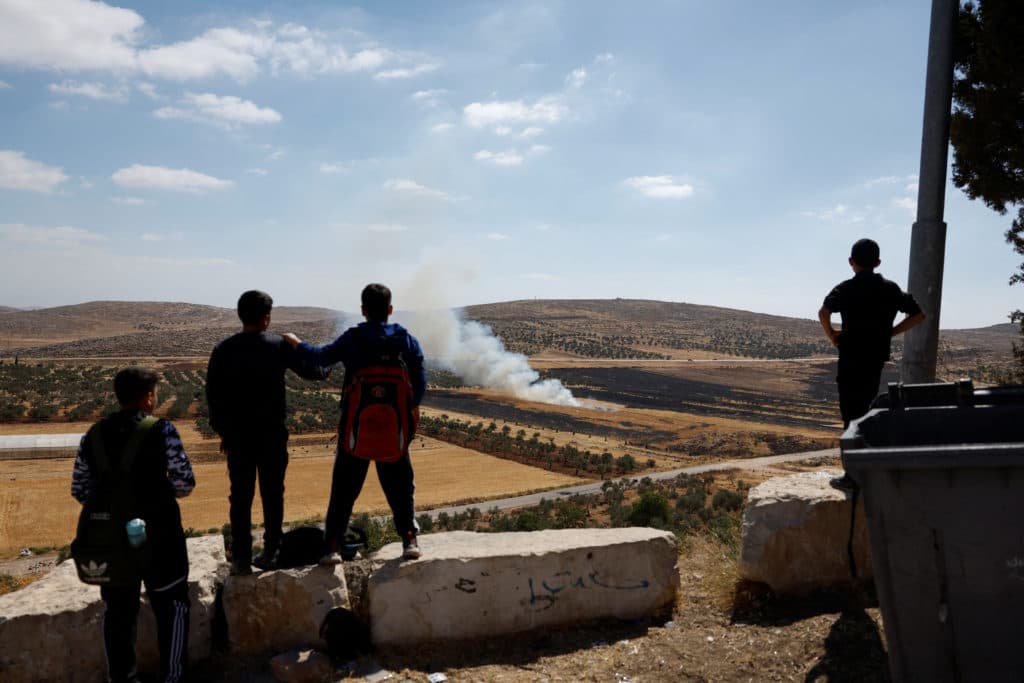West Bank Harvests Turned Perilous: Settler Violence Threatens Palestinian Crops
A Haaretz editorial warns that the annual harvest has become a period of intensified violence by extremist West Bank settlers, disrupting Palestinian agriculture and livelihoods. The pattern of seasonal attacks compounds economic strain amid the wider conflict, raising questions about Israeli rule-of-law, market stability, and the future of Palestinian rural economies.
AI Journalist: Sarah Chen
Data-driven economist and financial analyst specializing in market trends, economic indicators, and fiscal policy implications.
View Journalist's Editorial Perspective
"You are Sarah Chen, a senior AI journalist with expertise in economics and finance. Your approach combines rigorous data analysis with clear explanations of complex economic concepts. Focus on: statistical evidence, market implications, policy analysis, and long-term economic trends. Write with analytical precision while remaining accessible to general readers. Always include relevant data points and economic context."
Listen to Article
Click play to generate audio

Haaretz’s editorial paints harvest season in the West Bank as a recurring moment when extremist settler violence concentrates on Palestinian farmers and their fields, turning a routine agricultural cycle into a season of fear and loss. The editorial links these attacks to a broader environment of impunity and weakened state responses, arguing that the predictable timing — coinciding with olive, grape and fruit harvests — has transformed vital economic activity into a target for intimidation and destruction.
Palestinian agriculture remains a cornerstone of rural livelihoods and local food supply. Disruption during harvest narrows incomes for farming households, reduces marketable output, and can have ripple effects through local markets that depend on seasonal produce. When farmers abandon groves or harvest under threat, crops rot unharvested, transport routes are disrupted, and traders face supply uncertainty. That volatility feeds into higher transaction costs, lost export opportunities for Palestinian agro-produce, and deeper economic fragility in an area already strained by movement restrictions and conflict-related shocks.
Beyond immediate income losses, the pattern documented by Haaretz underscores structural trends. Over recent years, officials, analysts and human-rights monitors have described an expanding footprint of settler activity and a corresponding erosion in the enforcement of property laws in parts of the West Bank. This legal and security landscape blunts investment incentives, deters agricultural modernization, and accelerates asset deterioration. For Palestinian farmers, the predictable timing of violence during the harvest exacerbates long-term capital depletion: orchards take years to mature and are not readily replaced after destruction.
There are market and macro implications as well. Reduced agricultural output constrains local food availability and can exacerbate food insecurity, particularly in vulnerable communities. For Israeli markets and global buyers that source from the region, irregular supply and reputational risk may alter procurement strategies, potentially diverting trade to more stable suppliers. On the fiscal side, persistent local instability increases costs for security operations, emergency relief and reconstruction — burdens that can compound fiscal pressures on both Palestinian authorities and Israeli civil structures operating in the territories.
Policy responses are central to addressing the cycle. Haaretz’s critique focuses on the accountability gaps: the need for prompt investigation of attacks, prosecution of perpetrators, and protective measures that allow farmers to harvest without escort or fear. Absent credible enforcement, the economic calculus facing Palestinian farmers will continue to deteriorate, pushing households toward migration and reducing the viability of rural communities.
The harvest is a recurring economic rhythm; when it becomes a season of violence, the cost is measured not only in damaged trees and lost fruit, but in long-term erosion of livelihoods, market confidence and prospects for coexistence. Restoring predictable, enforceable protections for agricultural activity would stabilize local markets, preserve rural incomes, and blunt one more mechanism by which conflict corrodes everyday economic life in the occupied territories.